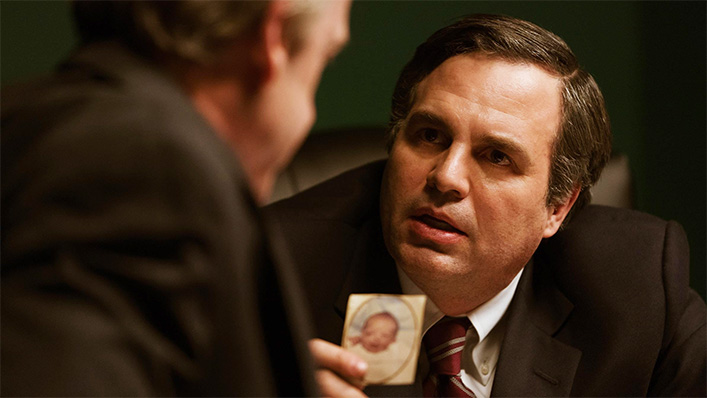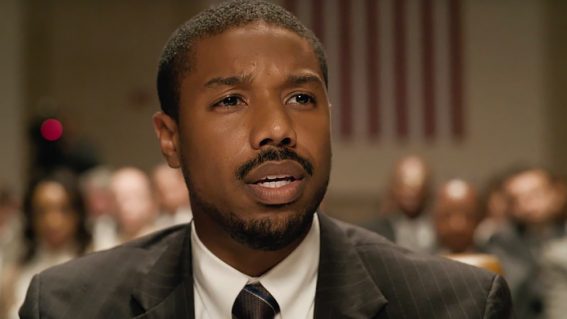The Mark Ruffalo-led legal drama Dark Waters finds menace in bland corporate hallways

Mark Ruffalo leads a legal drama about a lawyer challenging a corporate polluter, from I’m Not There and Carol director Todd Haynes. It partly works, writes critic Craig Mathieson.
As with the great man of history biopic that was Martin Scorsese’s The Aviator, Dark Waters finds a leading American filmmaker trying to put his stamp on an unfamiliar genre. A grim suit and tie thriller ensconced in greyed out deprivation, the new film from Todd Haynes about a corporate lawyer, played by Mark Ruffalo, who takes on a farmer’s case against a giant chemical company is dourly fixed in ways the director’s idiosyncratic investigations of identity in Velvet Goldmine and I’m Not There were not.
Here the idea of contamination leads resolutely to the malfeasance of big business, whereas 25 years ago Julianne Moore’s ill housewife in Safe was trying to survive something inexplicable. Based on true events, the film works, to a point, but unlike Haynes’ Carol its creativity is narrow and furtive.
When Rob Bilott (Ruffalo) is first contacted in 1998 by aggrieved West Virginia farmer Wilbur Tennant (Bill Camp), whose animals are dying terrible deaths since the chemical giant DuPont opened a landfill next door, he’s bemused. Still feeling like an intruder despite being promoted to partner, Bilott works at a firm that represents corporations. But after visiting the Tennant farm he can’t say no, and with the grudging approval of his boss, Tom Terp (Tim Robbins), he sues DuPont.
What transpires, with its bureaucratic obfuscation and horrible conspiracy, feels familiar. Partly because it’s the backbone of films such as Steven Soderbergh’s Erin Brockovich, and partly because Haynes wants to present a malignancy that allows a company to ultimately poison people as part of America’s national identity.
Working as ever with cinematographer Edward Lachman, Haynes finds menace in bland corporate hallways and uses long lens to isolate and pick out Bilott, who fervently hopes to simply fit in. The obsessiveness that overcomes the lawyer, complete with rooms full of discovery documents meant to bury the truth, is a natural fit for Ruffalo, whose nervous tics and crusading perseverance quickly recall his investigative journalist in Spotlight.
But perhaps it’s too easy for Ruffalo to play this part. Neither he nor the film can get to the core of the character, and he’s mostly a blank slate in his scenes with Anne Hathaway’s character, Sarah, a former lawyer turned stay at home wife and mother. Her intermittent presence is basically used to provide Bilott with disapproval or encouragement as required.
Mario Correa and Matthew Michael Carnahan’s screenplay works to covey the passing of time, but as the uphill struggle moves into a second decade the case’s slow machinations swallow character and mood. Some of the tones, such as Bilott’s paranoia, fall flat. But from one scene to the next Haynes’ eye for the implications can still be coolly startling: there is for instance a pan from the protagonist’s car exiting the basement carpark of a building all the way up to the possessive neon logo that’s a sublime summation. Haynes wants to comment on America’s corruption and the fallacies that engulf communities, but the imagery is matched to bluntly descriptive dialogue.
“The system is rigged,” Bilott eventually howls.” I can’t think of another Todd Haynes film that felt the need to say what it was already showing.


















